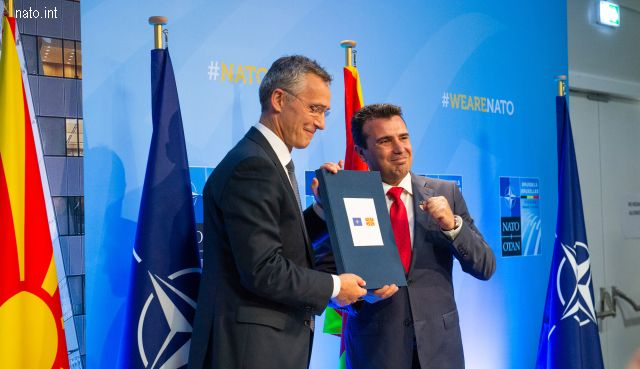The EU Starts Integration Negotiations with Albania and North Macedonia
The EU has greenlighted integration negotiations with Albania and North Macedonia

Eugen Coroianu, 03.04.2020, 20:09
The EU has greenlighted integration negotiations with Albania and North Macedonia, after resolving the objections raised by a few of the member states. The Union is keeping its word, and carrying out its obligations, according to officials in Brussels. At the same time, the decision confirms the strategic importance of the West Balkans, and proves that Europe is willing and able to make geopolitical decision even at this time of crisis because of the pandemic, as stated by the European commissioner in charge of expansion, Oliver Varhely. He congratulated on Twitter both countries, saying that this decision sends a clear message to the West Balkans, setting their future firmly within the European Union.
We asked what the reaction was in Bucharest, and the answer came from Iulia Matei, undersecretary for European affairs in the Romanian Foreign Ministry:
“The decisions made at this time at the EU level regarding opening integration negotiations with Albania and North Macedonia are, without a doubt, of major importance for those two states, but also at the higher European level, from the perspective of the political message it sends: that the expansion policy is of major relevance for the EU. In addition, I would mention that the importance of these decisions is so much higher given that it comes after many delays at the European level. The fact that we could adopt the decision now, even in such a difficult European context as the COVID-19 management problem, shows that the EU has the ability to honor its commitments to its West Balkan partners, and to recognize the significant progress that the two states have made on their course towards Europe.
Both candidates have had their hopes dashed several times, because France and the Netherlands have manifested skepticism regarding their evolution in terms of democracy and the fight against corruption, for fear of accepting new members when cohesion of the Union was being threatened by the Brexit. However, both those countries have withdrawn their objections in the last few weeks, and the process accelerated in spite of the crisis caused by the pandemic. Greece was persuaded at the last minute, after firmer measures were included regarding minority protection in Albania. Iulia Matei spoke to us about Bucharest’s position:
“Romania’s position was constant and principle-bound, one of supporting the policy of expansion. Romania has always seen the expansion policy as a strategic investment in the stability of our region, and as part of greater efforts to consolidate European unity. We have constantly underlined, starting from the example that Romania set as a candidate state, along the application of reforms it carried out, that expansion brings benefits for both candidate states and the EU as a whole. The benefits are multiple, in political terms, in terms of democratic construction, economic and social convergence, and reducing development gaps at the European level. As a consequence, the aim of opening integration negotiations with Albania and the Republic of Macedonia was pursued and promoted by Romania consistently, as a major priority of its term at the presidency of the Council of the European Union in the first half of 2019, as well as consequently.
Romania salutes the intent of the EC to immediately start preparing its proposals on negotiation framework documents with Albania and North Macedonia, and pleads for the first intergovernmental conferences between the two candidate states to be held as early as possible, before the end of this year. Also these days, North Macedonia officially became the 30th NATO member state, after a protracted process that included even changing the name of the country itself. The government in Skopje issued a statement saying that it had fulfilled the dream of a generation. The secretary general of the alliance, Jens Stoltenberg, issued his own statement, saying that North Macedonia is now a member of the NATO family, a family of thirty nations and a population of almost a billion. He said that this family was founded on the certainty that, irrespective of the challenges, it is stronger and safer because it keeps united. North Macedonia introduced its instrument for integration in the Atlantic Treaty to the US State Department, the last formal step for joining the defense alliance. US Secretary of State Mike Pompeo said that this is the culmination of years of efforts on the part of the government and citizens of North Macedonia. He underlined the fact that its new quality of NATO member state will lead to better integration, democratic reforms, trade, security, and stability in the region. Pompeo insisted that NATO is holding its door open for other countries to join as well. Last year, North Macedonia changed its name in order to settle a long standing dispute with Greece, a member of both NATO and the EU. Athens insisted that the government in Skopje change the name of the country if it were to support its integration in both organizations. Albania became a NATO member in 2009.






























